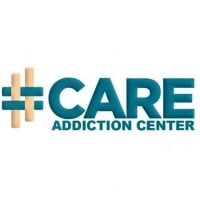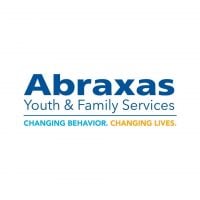Stonybrook Center
Drug Rehab Center in Winfield, Illinois
Stonybrook Center is a 29 Bed JCAHO and SAMHSA accredited Addiction Treatment Facility in Winfield, IL, offering various quality services to help those with Alcoholism, Opioid Addiction, Substance Abuse, Dual Diagnosis and Drug Addiction, with Private Health Insurance accepted.
About This Illinois Facility
Located in Winfield, Illinois, Stonybrook Center is a reputable drug treatment facility that offers comprehensive services for individuals struggling with alcoholism, opioid addiction, substance abuse, dual diagnosis, and drug addiction. With accreditations from JCAHO (Joint Commission on Accreditation of Healthcare Organizations) and SAMHSA (Substance Abuse and Mental Health Services Administration), Stonybrook Center is recognized for its high standards of care and commitment to providing effective treatment. This 29-bed facility accepts private health insurance, making their services accessible to a broad range of individuals seeking help for their addiction.
Stonybrook Center offers a range of treatment options to cater to the diverse needs of their patients. They provide detox services to support individuals in safely and comfortably managing withdrawal symptoms. The center also offers drug rehab programs, providing a structured environment for individuals to work on their recovery journey. Stonybrook Center acknowledges the complex nature of addiction and provides dual-diagnosis treatment to address both substance abuse and any underlying mental health conditions. Additionally, they offer intensive outpatient and outpatient programs, allowing individuals to receive ongoing support and therapy while maintaining their daily routines. With a dedicated team of professionals, Stonybrook Center is committed to supporting individuals in their path to recovery and helping them regain control of their lives.
Genders
Ages
Modality
Additional
Accreditations
SAMHSA

JCAHO
Conditions and Issues Treated
Substance abuse typically leads to addiction, which requires specialized treatment programs at Stonybrook Center to address. Many people benefit from inpatient drug rehabilitation, which includes inpatient acute care and residential rehabilitation. Other levels of care include intensive outpatient therapy, individual counseling, and support groups. Family therapy is also an essential part of treatment for substance abuse.
A combination of treatments is often needed to treat drug abuse issues effectively. In the case of drug abuse, there is no easy answer or one-size-fits-all cure.
Opioids are a series of medicines that are used for pain relief. Opioid addiction refers to the compulsive pursuit of opioids, even though they are not medically needed. Medication-assisted therapy at Stonybrook Center in Winfield, IL requires care in which both medications, medication, and behavioral treatments are used.
Substance use disorder falls under two categories: Alcohol or Drug Abuse and Drug Dependence. An individual suffering from a substance use disorder and mental health disorders is said to have a co-occurring disorder or a dual disorder.
Individuals with substance use disorders and mental health problems are said to suffer from a ‘dual diagnosis’. The most frequently identified mental health issues found in individuals with substance use disorders include anxiety, depression, schizophrenia, and schizoaffective disorder.
Levels of Care Offered at Stonybrook Center
This center offers a variety of custom treatment tailored to individual recovery. Currently available are Detox, Drug Rehab, Dual-Diagnosis, Inpatient, Intensive Outpatient, Outpatient, with additional therapies available as listed below.
Detox is a drug rehab process that is designed to remove the drug addict from the drug safely. The problem with solely using detox as a sobriety tool is that it alone provides no therapy or counseling. If a person goes through detox and returns to their everyday life, they may begin using again once the detox has worn off.
Detox does not help with cravings, so for some addicts, this can be extremely difficult and should be both done and supervised by medical professionals. Aftercare is crucial, so selecting a facility that offers additional services is important.
Inpatient treatment for addiction is generally not as scary as it might sound. It is a way to find recovery while being in a supportive and controlled environment. The duration of treatment at Stonybrook Center in Winfield can be different based on each individual. Many can leave after 28 days; some may stay a few months, and others may stay six months or longer.
An Intensive Outpatient Program like what’s offered at Stonybrook Center, targets those who need intensive treatment but would rather get it in the comfort of their homes. The treatment programs vary in duration and intensity. They can be tailored to suit the patient’s needs.
When remaining at their job in Winfield, or continuing their studies, the individual may live with their family while utilizing Stonybrook Center‘s outpatient services. Treatment requires counseling the patient at the individual level, in a group setting, about substance addiction, drugs, and therapy sessions.
Therapies & Programs
Couples therapy aims to rebuild the trust between the partners. Partner’s involvement in the process will result in greater chances of treatment success. Couples therapy addresses financial issues, loss of trust, lack of intimacy, and physical abuse.
Family therapy is a set of therapeutic approaches that assumes that the entire family is a system. It utilizes the strengths and resources of the family to help the patient refrain from resorting to substance abuse. The impact of substance abuse is not just on the patient but on the entire family. Family therapy ensures that the patient gets adequate support from the family members after the treatment making the recovery process sustainable
- Family therapy guides all the members of the family to help the patient.
- It helps to repair relationships and improve communication between family members.
- It helps to keep the patient engaged and motivated throughout the treatment.
Group therapy is an important tool in recovery. Finding a peer group in Winfield, IL and others who relate to your situation is a fundamental tool for recovery at Stonybrook Center. Addiction tends to lead to isolation and feelings of uniqueness. The accountability and friendship that is found in group therapy can be more effective than any single other treatment approach. This is generally introduced early in recovery and is recommended as a lifetime treatment habit.
Trauma therapy is a way of addressing trauma while in a safe situation in order to heal. This may involve Stonybrook Center managing individual or group counseling or both. Other forms of therapy have been proven to assist in healing past traumas.
Negative feelings are common in substance abuse disorders. If not recognized, they can cause co-occurring disorders. CBT involves strategies that help to change the thinking and behavioral pattern. It can be administered as a monotherapy as well as a part of combination therapy.
Rehabilitation is not just limited to bringing an individual out of addiction and achieving sobriety. It is considered complete only when an individual starts leading a normal and balanced life. Life skill therapy focuses on the various skills that help an individual to lead a normal life. Patients often do not take care of themselves, struggle professionally, and withdraw from social interaction due to addiction’s physical and emotional disturbances.
Life skills therapy helps people in Illinois improve various personal, professional, and social skills such as cooking healthy meals, maintaining proper hygiene, budgeting, decision-making, time management, regulation of emotions, and effectively resolving interpersonal conflicts.
Nutrition therapy, also called medical nutrition therapy (MNT), addresses the unique needs of the recovering person’s diet. Due to addiction’s devastating toll on a person’s physical health, healthy eating must be addressed as soon as therapy starts. A good diet helps boosts a recovering person’s ability to fully participate in Stonybrook Center therapy.
Nicotine replacement therapy (NRT) is a treatment that helps people to quit smoking. In nicotine replacement therapy, a controlled amount of nicotine is provided in the form of gums, patches, or sprays. They do not contain the harmful chemicals usually found in tobacco products. NRT reduces the withdrawal symptoms by giving nicotine in low doses. However, NRT provides relief only from the physical withdrawal symptoms. The emotional and psychological aspects of quitting needs to be treated separately. While NRT is safe for most adults, teens and pregnant women should not undergo NRT. Research shows that the use of NRT doubles the chances of quitting smoking.
Patient Experience
Experiential Therapy at Stonybrook Center
Experiential therapy works by using tools and activities to recreate past experiences. Role-playing, arts and crafts, music, animal care, rock climbing, etc. are some of the activities used in this therapy. It is different from medication and talk therapy and suits those who have difficulty expressing themselves.
Payment Options Accepted
For specific insurance or payment methods please contact us.
Is your insurance accepted?
Ask an expert, call (888) 674-0062
Additional Details
Specifics, location, and helpful extra information.
Winfield, Illinois 60190 Phone Number(630) 933-4000 Meta DetailsUpdated November 25, 2023
Staff Verified
Patient Reviews
There are no reviews yet. Be the first one to write one.
Winfield, Illinois Addiction Information
In 2016, more than 2,350 Illinoisans died from drug overdoses. More than 5,500 deaths annually occur in Illinois due to the abuse of alcohol and other drugs. 7.17% of Illinois residents reported using illicit drugs in the past month (2018). Substance abuse costs the state approximately $3.5 billion every year.
Treatment in Nearby Cities
- Urbana, IL (121.9 mi.)
- Buffalo Grove, IL (22.6 mi.)
- Harrisburg, IL (286.6 mi.)
- Maryville, IL (237.5 mi.)
- Lasalle, IL (57.8 mi.)
Centers near Stonybrook Center
The facility name, logo and brand are the property and registered trademarks of Stonybrook Center, and are being used for identification and informational purposes only. Use of these names, logos and brands shall not imply endorsement. RehabNow.org is not affiliated with or sponsored by Stonybrook Center.




